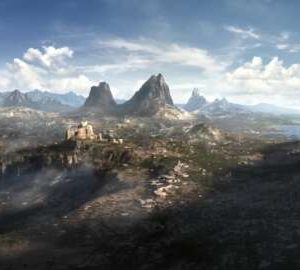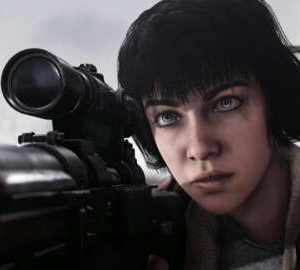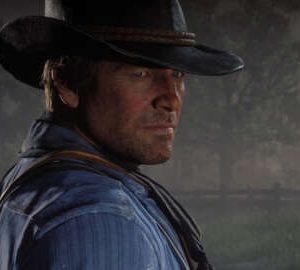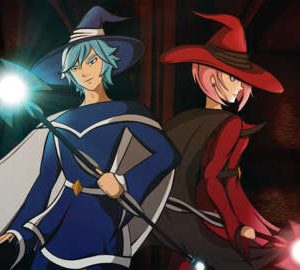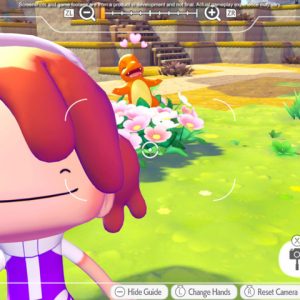It’s been six years since Monster Hunter: World showed what the beloved action series could accomplish when it made the jump from Nintendo’s consoles back to more powerful hardware. As fun as 2021’s Monster Hunter Rise was, it was built for the Switch and pulled back in many ways from the ambition of its PlayStation 4 and Xbox One predecessor. With Monster Hunter Wilds, Capcom is remaking the multiplayer monster-slaying loop from the ground up for PS5 and Xbox Series X/S (and PC) with cross-play, and it shows. The game doesn’t just look bigger and better, it also promises to double down on the immersive fantasy of adventuring out in a monster-filled wilderness and all that entails.
Capcom wouldn’t let me try Monster Hunter Wilds, currently slated to arrive in 2025, for myself at Summer Game Fest, but I did get to watch did get to watch director Yuya Tokuda play for 30 minutes in a closed-door presentation for press and content creators. We only caught a small glimpse of what’s likely to be another massive game, and it’s impossible to know how the final product will shake out many months from now, but what I saw looked impressive, and suggested that Capcom’s Monster Hunter team is focusing on the right things. Namely: making the world of Monster Hunter Wilds feel as varied, vibrant, and alive as possible.
Our demo began with Tokuda riding across large desert fields into a village where he could choose his next hunt and prepare for the challenge accordingly. The creature he would set out to kill was an Alpha Doshaguma, a fanged bear-like beast on the Windward Plains with red fur and the weight of a freight train behind it. After double-checking his equipment and picking up some cheeses being aged in the sun from a local merchant, the director uses a minimap full of icons and depicting multiple elevations to head out into the plains in search of his quarry.
A representative for Capcom narrating the event said fields in Monster Hunter Wilds will be twice the size of those in previous games. Mounts are now a mainstay to help with navigating these sprawling spaces, and no load times between individual areas makes exploration look seamless. Before coming to the Doshaguma, Tokuda selects a random spot to build a destructible pop-up camp where he can cook a meal to get some stat buffs. A nearby creature is killed for its meet which gets cooked in a pan with the cheeses from the village in a mouthwatering dish the hunter consumes with glee.
From there it’s off to the fight. It’s unclear what the normal tracking segment of a Wilds hunt will look like (we weren’t allowed to ask questions), but in our presentation Tokuda essentially just followed a waypoint to a group of Doshaguma and then snuck up on the one that was marked to begin fighting it. Chaos immediately broke out. Smaller beasts were lured into a nearby bramble patch where they got stuck and took damage. Tokuda similarly got the alpha to follow him into a sandpit trap before heading off to a new area.
After some fighting the battle moved into a second phase at which point a sandstorm began rolling in alongside a lightning-filled thunderstorm. The Doshaguma began fighting a dragon that had wondered into the area, which Tokuda stressed was normally supposed to appear later in the encounter, suggesting unscripted collisions between the game’s monsters and changing weather patters might make repeat hunts more varied. As the storm raged, Tokuda tried to draw the Doshaguma into nearby lighting blasts while also grapple-hooking onto overhanging rocks to down-slash with his sword. Additional special moves targeted specific wounds that could be popped for extra damage.
After leading the beast on a chase through a large cavern full of falling stalagmites that could be pulled down with the grappling hook, Tokuda came out the other side into a part of the map where the storm had cleared and the sun shone from a clear blue sky. In addition to changing the look and hazards in the world, new weather also impacts what players will find in the environment. With the sandstorm cleared, healing resources were scattered more plentifully throughout the map and smaller creatures were more likely to be found wandering underfoot. It was also here that Tokuda summoned three AI-controlled NPCs to help him finish the fight.
Tokuda was there to kill a giant Doshaguma, and so he followed it to an alcove where it was attempting to sleep and put a bunch of powder kegs right next to it. What would a Monster Hunter Wilds demo be without a bit of the series’ infamous sleep bombing? The final moments of the fight involved characters circling on their mounts, shooting the beast from afar, and also grapple-hooking overhead to mount it and attack on its back. It’s the most spectacular a Monster Hunter fight has ever looked, and if the finished game runs that smoothly, fans are in for a great time.
We didn’t get a clear sense of the other things longtime fans will be obsessing over, like which precise monsters will be in the game this time around, how Capcom may have played with the way each weapon works, and dozens of other things that can sound small on their own but come to overwhelmingly define what a new Monster Hunter experience feels like after dozens if not hundreds of hours of play. Instead, our demo concluded with a much more lowkey reveal: migratory birds. Tokuda pulled out his spyglass, peered at a nest in a nearby tree, and revealed a few chicks waiting for their mama.
The director seemed exceptionally pleased with the promise that players will be able to birdwatch in Monster Hunter Wilds, seeing different ones come and go depending on the time and weather, following their own more naturalistic rhythms rather than pre-scripted rulesets. He said if a player waited around long enough, they might even see the mama bird come back and begin feeding the chicks. The possibility cut a sharp contrast with the crocodiles Tokuda had just slaughtered for getting in his way while he had been trying use his spyglass.
Monster Hunter: World helped the dense series break out when it arrived in 2018. My sense of Wilds from my short time with it is that Capcom wants to build on that momentum and make the exploration feel both more natural and more streamlined, with players able to cook food, swap equipment, and choose their next hunt from the field rather than constantly trekking back to a social hub. Long known for its boss fight spectacles and involved loot tables, what I saw of Wilds showed its aiming to be every bit the immersive open-world experience fans of other action-RPGs might be expecting. Possibly even better.





